Join our email list
Be the first to know about special offers and new products!
By signing up, you consent to our privacy policy.

Skin-renewing and anti-ageing, retinol for skin benefits virtually every skin type. To answer some of your most commonly asked questions we spoke to Dr Michelle Henry – a dermatologist from New York. Learn what is retinol, it's many skin benefits and how you can incorporate this powerful ingredient into your skincare routine with our tell-all guide.
Renowned by dermatologists worldwide, retinol is a potent and efficacious skincare ingredient. Retinol for face remains one of the most celebrated components of the skincare world, due to its powerful ability to help improve skin across a wide range of concerns.
Retinol skincare is sourced from the vitamin A nutrient. Different derivatives – like tretinoin, retinaldehyde and retinol ester each have varying levels of potency. Using retinol for skin provides a gentler way to receive Vitamin A benefits.
You've most likely heard of its ability to improve skin – but what does retinol do exactly? Retinol superpower is due in part to its structural composition, which bonds with skin in a unique and effective way. “Retinol is a vitamin A derivative that is involved with skin turnover and skin regulation”, says Dr Henry. Put simply, retinol works by accelerating the rate of cell turnover in the skin, allowing new skin cells to reach the skin's surface faster then they would naturally. As an antioxidant, retinol for skin dissolves in natural oils and binds to the receptors in skin cells. These receptors then trigger various processes, to improve the appearance and texture of dry to oily skin types and everything in-between.
Both ingredients are derivatives of vitamin A – but the major difference between retinol and retinoid is their potency. “When retinol encounters a cell, there are other enzymes required to get it to its most active state, which limits its potency”, explains Dr Henry.
Retinoids such as tretinoin meanwhile, are “closer to their active state,” Dr. Henry explains, and therefore more potent. In other words, retinoids don't need to change into a different form to work properly the way natural vitamin A does. They're effective all on their own.
Vitamin A works at a cellular level to promote fast skin turnover. With this function in mind, what is retinol good for? The inclusion of retinol skincare at different ages and on different skin types can improve skin’s texture and visibly reduce dark spots, large pores and signs of ageing like fine lines and wrinkles. Don't let the Retinol Uglies fool you!
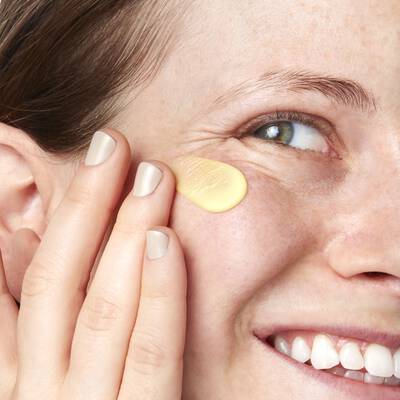

Ageing skin symptoms are the combined result of natural changes and cumulative stress. Retinol for skin is highly effective in any anti-ageing routine. With so much hype around the benefits, what does retinol do for your skin as it ages? As we grow older our collagen production slows down. Retinoids like retinol encourage collagen production and help to neutralise free radicals (unstable molecules), which can cause collagen damage to the skin. This helps to ‘fill in’ the appearance of wrinkles and firm skin texture.
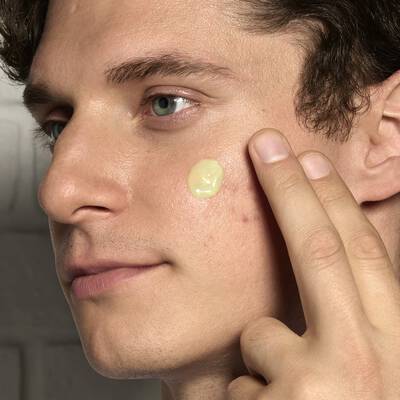

Those who experience excess oil flow, clogged pores and blemishes can use retinol benefits to see substantial improvement in skin. Vitamin A benefits for this skin type don’t just include the reduction of breakouts and imperfections, but also help to fade acne scarring from previous blemishes. Retinol skincare achieves this by decreasing oil gland function, minimising the appearance of pores along the way.
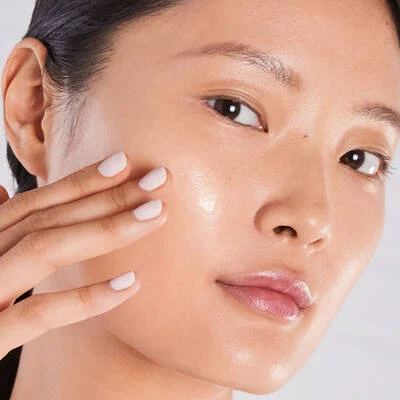

Those with dry skin commonly experience dullness, due to build-ups of dead skin cells and roughened skin texture. A retinol serum exfoliates skin on a molecular level, increasing skin cell turnover and revealing fresher complexions. This can result in beautifully renewed skin for dry skin types, both in appearance and feel.
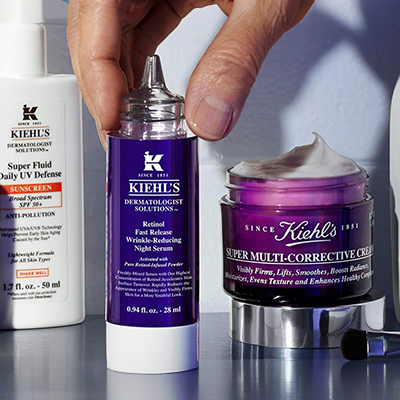

One of the many benefits of Retinol worth noting is its ability to promote an even skin tone through stimulating skin cell turnover and t's 'exfoliating' effect. New skin cells are brought to the surface helping you achieve a brighter, more even skin tone with increased collagen and elasticity. Use in conjunction with a Vitamin C Serum for the ultimate routine to help diminish dark spots & pigmentation.
Though the benefits are endless, who can benefit from retinol is limited. The potency of this ingredient can cause negative results is some skin types. As everyone’s skin type is unique, if you do implement it, consider how often to use retinol to begin with. Starting slow can alleviate discomfort down the line.
Those who experience excess oil flow, clogged pores and blemishes are included in skin types that benefit from retinol the most. Not only can retinol reduce breakouts and imperfections, but it can also be used to address and reduce acne scarring. We recommend starting gently and building up strength. Moisturising products can sometimes seem antithetical to those with already shiny skin, but it’s important to maintain hydration when using retinol. Opt for an oil-free moisturiser like the Ultra facial oil free cream Face Cream.
Retinol for face is a potentially sensitising ingredient meaning those with highly sensitive skin may experience uncomfortable side effects when using the ingredient, in such case please avoid using higher dosage of pure retinol. Should you still target to use, start with low-dose as beginners with reduced usage and only increase at a slow rate. Ensure that you hydrate your skin well and can also use a thin layer of moisturiser like Midnight Recovery Omega Rich Cloud Cream before application of retinol serum.
Those with dry skin commonly experience dullness, due to a build-up of dead skin cells and roughened skin texture. Retinol exfoliates skin on a molecular level, increasing skin cell turnover and revealing a fresher complexion. This can result in beautifully renewed skin for dry skin types, both in appearance and feel. However, retinol can potentially dry skin, so it’s important to counter this with a deeply hydrating moisturiser. When using retinol, follow with the restorative Ultra Facial Cream.
See how to introduce retinol into skincare routines with potent formulas.
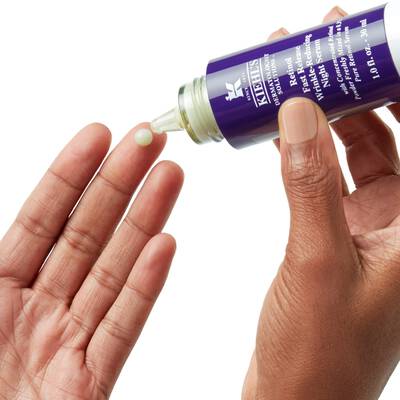
Our potent nightly retinol serum contains 0.3% pure retinol, to ensure optimum efficacy. Permeating up to 15 surface layers of skin, this retinol anti-ageing formula targets signs of ageing like fine lines and wrinkles – visibly reducing their appearance and accelerating cell renewal for new, youthful skin in just 5 days.
Because this ingredient makes skin more sensitive to UV radiation, the order of when to use retinol is fairly specific. You can use retinol for face in nighttime skin routines – but how to use retinol in skincare routines will shift depending on your application time. Alongside this, how much retinol to use will depend on your skin type and skin concerns. We recommend starting off with a low dose, once per week, and building up from there.

At night, always begin with a cleanser for your skin type. We recommend a gentle cleanser like Ultra Facial Cleanser. The inclusion of olive-derived squalane and avocado oil in this cleanser helps to purify skin without stripping natural moisture, supporting the skin barrier.
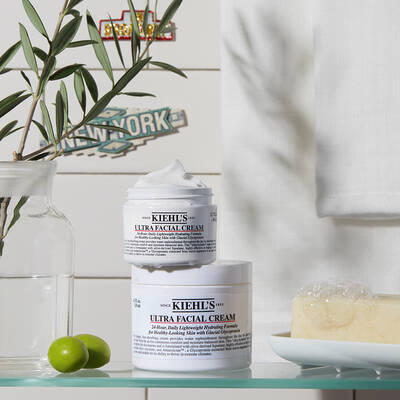
For those with sensitive skin especially, applying a thin layer of moisturiser before retinol will help to prevent skin drying out. Opt for a lightweight formula like Ultra Facial Cream With Squalane for this initial moisture layer. This helps skin maintain optimum levels of hydration throughout your application.

A big part of how to use retinol in routines is the status of skin you apply it to. Skin should be clean and dry before application. A high potency retinol serum increases sensitivity to UV radiation – which can cause stress to skin.

Sealing a layer of moisture on top of retinol skincare will help to protect skin from redness or dryness. Skin is more permeative at night, which provides opportunity for it to absorb more moisture. How to apply retinol at night time involves thicker-textured evening creams. Once your retinol serum has absorbed apply a thick layer of a night moisturiser like Midnight Recovery Omega Rich Cloud Cream, to help skin stay plump and hydrated by morning.
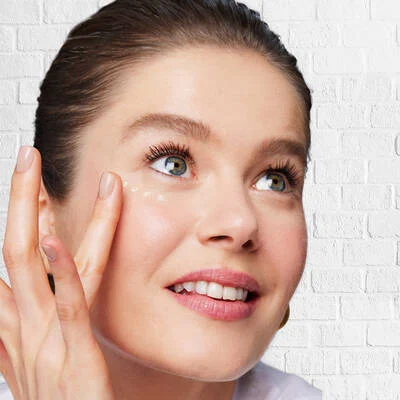
In a daytime routine, SPF should always be the last step in a retinol skincare routine. To ensure your skin receives vitamin A benefits in a supportive way, SPF should be high level and be reapplied throughout the day (and as directed by the individual product).
How long before retinol results appear will depend on how consistent your use is. With the appropriate application and alongside supportive moisturising and SPF formulas, retinol benefits can be seen between 3-6 months.
Answers to Your Frequently Asked Retinol Questions
As a hydrating substance, niacinamide is an ideal pairing ingredient with retinol. Otherwise known as vitamin B3, niacinamide helps to stabilise water content in skin and is a brightening ingredient in its own right. Found in moisturisers and cleansers, niacinamide is safe and encouraged to use with retinol.
Hyaluronic acid is a humectant skincare ingredient. This means it continuously draws moisture to skin, helping moisture levels to stay high. Used often in face serums and moisturisers, hyaluronic acid can be layered with retinol skincare both morning and night.
Both retinol and vitamin C are antioxidants and can be used within the same skincare routine. However, the potency of these ingredients means that knowing when to use retinol with vitamin C is important. To avoid overstimulating skin, we recommend using a retinol serum at night and a vitamin C serum like Clearly Corrective Dark Spot Solution in the day, to combat skin stress from sun exposure. Learn more about these two ingredients in our guide all about Vitamin C & Retinol.
There are visible and long-lasting benefits to using retinol for skin concerns like blemishes and breakouts. This is because retinol skincare works to unblock pores and reduce the appearance of their size, which can help reduce and stabilise the occurrence of imperfections. To ensure skin stays properly hydrated through the use of products like a retinol serum, apply an oil-free moisturiser like Ultra Facial Oil-Free Gel Cream alongside it.
Retinol skincare should be avoided during pregnancy. Skin during this period can experience newfound sensitivity, dryness, alongside the occurrence of blemishes and breakouts. To alleviate these symptoms, gentle ingredients like vitamin B5 can be used to strengthen the skin barrier and help maintain moisture.
When seeking how to introduce retinol into skincare routines, be aware that skin needs to acclimate to the ingredient initially. Retinol skincare is a long-term journey – and in the short term, instances of pimples may occur. Ultimately and with consistent use, retinol benefits those with oily or acne-prone skin.
Vitamin A benefits are the same as retinol benefits because it is the starting source. Retinol is a gentler derivative of the nutrient – meaning it can be introduced into the skincare routines of all skin types.
Explore the range of retinol anti-ageing products.